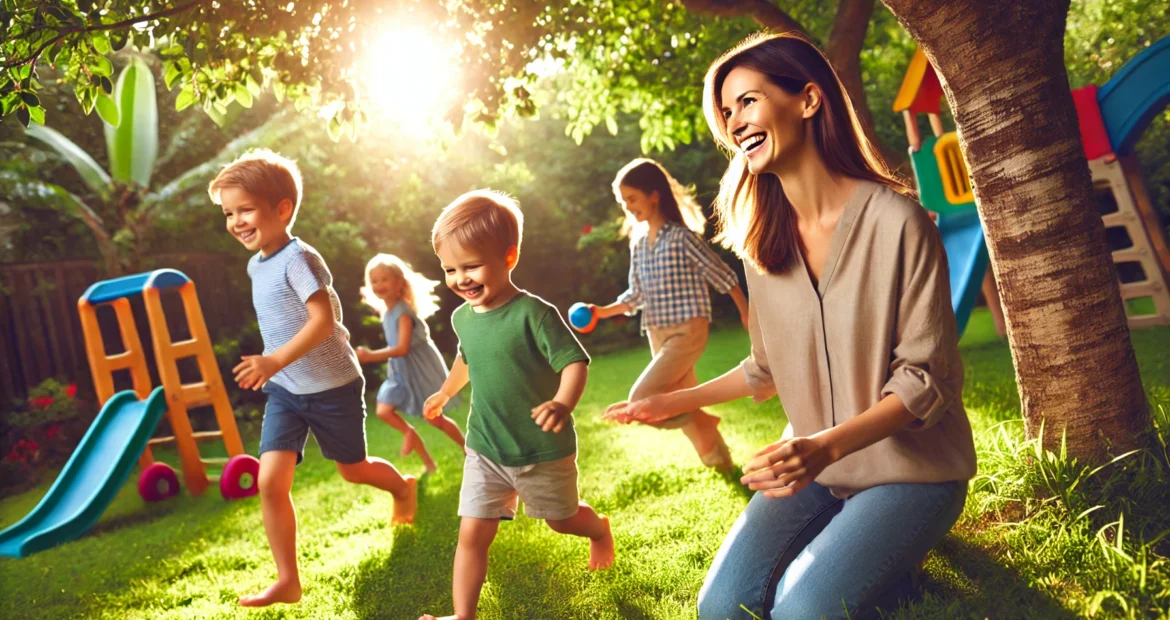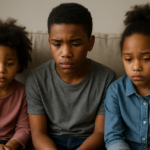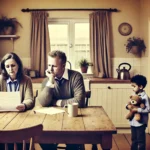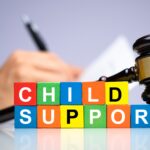Separation and divorce can be among the most traumatic experiences a child may face. While children are usually not directly involved in the decision to end a marriage, they may witness and feel the emotional and psychological effects deeply. The family structure, stability, and routine that children have known may suddenly dissolve, leaving them to navigate a world that feels unpredictable and uncertain. Although every child reacts differently, the emotional toll that separation and divorce can take on a child or children in a home is significant. There are various ways children struggle with separation and divorce, the stages of their emotional adjustment, and the long-term effects these experiences can have on their future development.
Emotional Responses to Separation and Divorce
Children’s emotional responses to separation and divorce are varied, but they often share common themes. The first response most children experience is confusion. Separation usually means the family will no longer live together and the child(ren) may not fully understand why this change is happening. Younger children may not have the cognitive maturity to grasp the concept of separation, making them more vulnerable to anxiety, sadness, and anger. Their confusion may also stem from the drastic changes in their living arrangements, such as moving between two homes, or their emotional shift in the household environment.
In addition to confusion, children often feel sadness and grief over the loss of the family as they once knew it. Their grief may not necessarily manifest in the same way as it would for the death of a loved one, but it is still a form of personal loss. They may mourn the absence of daily interactions with one parent or the breakdown of family traditions and routines. For children, the security of a stable, two-parent home can represent a foundation of love, protection, and care. When that foundation is disrupted, the sense of security crumbles, which can lead to emotional turmoil.
In the early stages after separation, anger is a common emotional response. Children may direct their frustration toward one or both parents. This anger could be rooted in a sense of abandonment or betrayal. Even if the child is not consciously aware of the underlying reasons, the reality of seeing parents separate can spark feelings of rejection. They often feel like they are caught in the middle, especially if parents are hostile toward each other or if they feel pressured to choose sides.
For older children, particularly teenagers, rebellion can manifest as an emotional reaction to divorce. Adolescents, who are already struggling to assert their independence and find their identity, may experience heightened feelings of confusion or resentment. They may struggle with feelings of guilt, particularly if they believe they are responsible for the breakup. Additionally, teens may act out in an attempt to regain control over their environment, sometimes engaging in risky behavior, withdrawing emotionally, or turning to their peers for comfort instead of their parents.
The Stages of Adjustment
Children’s emotional adjustment to separation and divorce is rarely immediate and typically unfolds in stages. These stages are not necessarily a linear pattern and can overlap as children process their emotions in their own time and manner.
- Denial and Shock: The first stage often involves a sense of disbelief or denial. Children may act as if the separation is temporary or that their parents will reconcile. They may ignore the severity of the situation or pretend it isn’t happening, often because they are unable to process the emotional weight of the event.
- Fear and Anxiety: As the reality of the situation sets in, children often experience fear and anxiety. They worry about how their lives will change—whether they will see their parents as often, if they will have to move, or if they will still be loved and cared for. Younger children, particularly, might regress in behavior, such as becoming clingier, having trouble sleeping, or display anxiety about being separated from a parent. These signs indicate a loss of emotional security.
- Anger and Resentment: During this stage, children often express anger toward one or both parents. They might feel abandoned or may direct their frustration at one parent for initiating the divorce. This anger can be directed toward the situation itself, especially if there is no clear explanation or if the child feels caught in the middle of parental conflict.
- Sadness and Depression: As children begin to understand the permanence of the situation, sadness often sets in. They mourn the loss of the family unit and may feel a sense of loneliness. Depression can manifest in various forms, such as withdrawal from friends, a decline in school performance, or a loss of interest in activities they once enjoyed.
- Acceptance and Adaptation: Over time, children begin to accept their situation and adjust to the new family dynamics. This doesn’t mean the emotional pain goes away, but they start to find a way to move forward. They may establish a new routine, form a relationship with the parent they see less frequently, and learn to cope with the changes. It is important to note that acceptance does not necessarily mean that children are unaffected by divorce – it simply indicates they have learned to adapt to their new reality.
Long-Term Effects on Children
While some children adjust to their parents’ separation and divorce without significant long-term effects, others may carry psychological scars for many years. The impact of divorce on children often depends on several factors, including their age, personality, and the level of conflict between parents. For example, younger children may be particularly vulnerable to the emotional toll of divorce because they are more dependent on parental figures for stability and security.
Some common long-term effects of divorce include:
- Attachment Issues: Children of divorce may struggle with attachment in future relationships, finding it hard to trust others. This can affect their ability to form healthy romantic relationships as adults. A disrupted sense of family stability can also make it more difficult for children to trust their own emotional security.
- Academic Struggles: Many children of divorce experience difficulties in school. This can be attributed to the emotional stress they face, which may affect their ability to concentrate and perform academically. They may have a lower sense of self-esteem or feel distracted by their family issues, leading to a decline in academic performance.
- Mental Health Concerns: Long-term, unresolved emotional trauma can contribute to anxiety, depression, and other mental health issues later in life. Children of divorced parents may be at a higher risk for developing mental health challenges due to the instability and emotional distress they experienced during the separation and divorce process.
- Behavioral Problems: In some cases, children of divorce may act out in ways that reflect the stress they have experienced. These behaviors can range from aggression or defiance to emotional withdrawal or substance abuse.
- Difficulty with Future Relationships: The emotional wounds from a divorce may influence a child’s expectations of relationships as they grow older. Children may struggle with feelings of inadequacy, fear of abandonment, or a mistrust of long-term commitments, which could affect their future romantic relationships or their role as parents.
Separation and Divorce – Final Thoughts To Consider
Divorce is undeniably difficult for children. They are forced to confront complex emotions such as sadness, anger, fear, and confusion, which can take years to fully process. The emotional and psychological impacts of separation and divorce are far-reaching, with the potential to affect various aspects of a child’s development, including their academic performance, mental health, and future relationships. While not all children experience lasting long-term emotional effects, the scars left by divorce can shape how they see themselves as both children and adults, their families, and the world around them.
To help children navigate these challenges, parents should provide as much stability and emotional support as possible. Open communication, therapy, and involvement in both parents’ lives, even in separate households, can go a long way in minimizing the negative impact of separation and divorce. Ultimately, the way parents handle separation and divorce, and maintain their relationship with their children, will have a significant influence on how children cope and adapt to their new reality and mature into adults.
My2Families is the perfect complimentary co-parenting app to help bridge the emotions moms, dads, children struggle with after separation and for many years into the future.
When Children Do Well, Parents Do Well
When Parents Do Well, Children Do Well






















